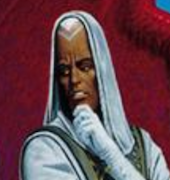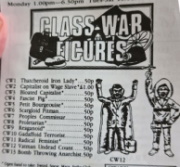|
 https://www.youtube.com/watch?v=w9KFAhn1sgM
|
|
|
|

|
| # ? May 23, 2024 19:16 |
|
I assumed it was just a cool grate for making toast over a fire but now I want one
|
|
|
|
https://twitter.com/MacroPancakes/status/1576721208149962754
|
|
|
|
Hi2tory
|
|
|
|
Finally time for Herstory
|
|
|
|
Teriyaki Hairpiece posted:I assumed it was just a cool grate for making toast over a fire but now I want one Might hook it up to mains, there was lots of that craziness back then
|
|
|
|
Is this a Dark Brandon sort of thing https://twitter.com/NeilPHauer/status/1576904405550772224 https://twitter.com/rylefou/status/1574891374888947713 https://twitter.com/KarnesKarnes2/status/1574797333681868801/
|
|
|
|
https://twitter.com/redfishstream/status/1576875980576415746 germany shock therapied its eastern half  quote:Today is "German Unity Day" marking German reunification in 1990. While the elites celebrated the creation of a single German state for the first time since the end of WWII, for the citizens of the German Democratic Republic, it marked a turn towards neoliberal disaster. 🧵
|
|
|
|
ok but did u know that angel merkel is from east germany that proves that east germans can overcome their economic backwardness if they leave east germany which is probably filled with filthy racists anyway just like all those places in the united states im quite sure are filled with subhuman vermin who deserve to die
|
|
|
|
https://twitter.com/xruiztru/status/1576961814105313282?t=YA9Umc6oAUMJPpyhBbGVPg&s=19
|
|
|
|
what did those stats look like forty years ago
|
|
|
|
gradenko_2000 posted:https://twitter.com/xruiztru/status/1576961814105313282?t=YA9Umc6oAUMJPpyhBbGVPg&s=19 lol that it’s black
|
|
|
|
note that the data is from 2011, and 11 years later, there's probably a lot less red and blue in the west lmao
|
|
|
|
East Germany was very poor before the reunification, having paid heavy reparations to the USSR. Their economy seems to have recovered better than the countries in the former Soviet Union.
|
|
|
|
The Treuhand deindustrialized the east to make sure western companies like Krupp and Siemens didn’t get competition. Reparations lol
|
|
|
|
whats some good books on post ww2 germany?
|
|
|
|
Orange Devil posted:The Treuhand deindustrialized the east to make sure western companies like Krupp and Siemens didn’t get competition. Competition with what? Trabants?
|
|
|
|
https://ideas.repec.org/p/cpr/ceprdp/892.htmlquote:The great majority of East German SOEs have been privatized and are now genuine capitalist firms with an owner with the incentive and the power to change management behaviour. Meanwhile East Germany has been deindustrialized with employment in mining and manufacturing falling to one quarter of its pre-unification level. This is a paper from 1993. Just casually losing 75% of your mining and manufacturing in less than 5 years, no big deal. Must be because of lovely quality Trabants right? gently caress you. Orange Devil has issued a correction as of 17:09 on Oct 4, 2022 |
|
|
|
https://twitter.com/primarycatdad/status/1570739141918457857quote:For some few days in July of 1877, the city of St. Louis was held by a revolutionary Commune. You fancy yourself a communist but don't know about the only self-organized commune in the territorial U.S.? Sit right down and listen. rip st louis commune 
|
|
|
|
I've started reading a book about the start of the American Revolution. It's only the prologue and things are already not looking good. quote:More than two thousand mature oaks had been felled to build a ship like this, the biggest, most complex machine in the eighteenth-century world, the steam engine and spinning jenny be damned. The king admired the massive oak balks, the knees chopped from tree forks, the thick planks wider than a big man’s handspan, the gun decks painted bright red to lessen the psychological shock of blood spilled in battle. Twenty or more miles of rope had been rigged in a loom of shrouds, ratlines, stays, braces, and halyards. Masts, yards, spars, tops, and crosstrees rose overhead in geometric elegance. Even at anchor this wooden world sang, as timbers pegged and jointed, dovetailed and mortised, emitted creaks, groans, and squeals. Belowdecks, where each sailor got twenty-eight inches of sleeping width for his hammock, the powder monkeys wore felt slippers to avoid creating sparks in the magazine. The smells of tar, hemp, pine pitch, and varnish mingled with the brine of bilgewater and vinegar fumigant and the hog-lard pomade sailors used to grease their queues. All in all, it was the precise odor of empire.
|
|
|
|
Teriyaki Hairpiece posted:I've started reading a book about the start of the American Revolution. It's only the prologue and things are already not looking good. how was the smell situation below deck? also was there more pegging and jointing, dovetailing and mortising, emitting creaks, groans, and squeals..
|
|
|
mawarannahr posted:how was the smell situation below deck? also was there more pegging and jointing, dovetailing and mortising, emitting creaks, groans, and squeals.. in an era when the thames was an open sewer and animal poo poo was everywhere, everyone still remarked on the smell. i genuinely cannot imagine what the smell would be like and i live near industrial hog farms
|
|
|
|
|
Danann posted:https://twitter.com/primarycatdad/status/1570739141918457857 at least they got a creepy pagent out of the whole thing
|
|
|
|
https://www.thetimes.co.uk/article/britain-secretly-backed-mussolinis-march-on-rome-pzsr2hpb8 https://archive.is/HPrga  
|
|
|
|
Danann posted:https://twitter.com/primarycatdad/status/1570739141918457857 Here's a song about the railroad strike: https://www.youtube.com/watch?v=ds4cHgzN-S8 Orange Devil has issued a correction as of 11:30 on Oct 5, 2022 |
|
|
|
To be clear, I'm not disgusted by the idea of the smell, which absolutely was disgusting, I'm disgusted by the turgid prose and possibly pro-British Empire slant of the author
|
|
|
|
Azathoth posted:in an era when the thames was an open sewer and animal poo poo was everywhere, everyone still remarked on the smell. i genuinely cannot imagine what the smell would be like and i live near industrial hog farms Oh yeah? How about the smell coming from the Chincha Islands, where migratory sea birds stopped and took a dump for several millennia. The Andean natives figured out that guano could replenish soil fertility, and had llamas haul it from the islands up into the terraced agriculture lands of the Andes, and there were even "penalties for disturbing the birds during nesting or taking guano allocated to other villages." But then Europeans figured out the value of guano, and you can probably guess what happened next: (from 1493: Uncovering the New World Columbus Created by Charles C. Mann) quote:It was said that the islands gave off a stench so intense that they were difficult to approach. They were a clutch of dry, granitic mounds thirteen miles off the Peruvian shore, about five hundred miles south of Lima on the west coast of South America. [...] Predators and prey both are preyed upon by the Peruvian booby, cormorant, and pelican. All three have nested on the Chincha islands for millennia. Over time they have covered the islands with a layer of guano as much as 150 feet thick. And then Europe went to war over the islands. Dreylad has issued a correction as of 16:40 on Oct 5, 2022 |
|
|
|
Teriyaki Hairpiece posted:To be clear, I'm not disgusted by the idea of the smell, which absolutely was disgusting, I'm disgusted by the turgid prose and possibly pro-British Empire slant of the author yeah it's a history book bro what do you expect you either get purple prose or you get a bone dry dissertation
|
|
|
|
I read like two more pages and I'm already learning stuff Apparently George III never left England. Ever. Not as a baby, not as a grown man, not as a crazy old person. He didn't even go to Scotland. This is the ruler of an advanced murderous Empire that spanned the whole globe. He just sat there like a spider in a web for his entire life. That's fuckin sad, man.
|
|
|
|
Crying Charles V.gif
|
|
|
Teriyaki Hairpiece posted:I read like two more pages and I'm already learning stuff Imagine if he'd had the internet
|
|
|
|
|
Teriyaki Hairpiece posted:Not this, please It's actually kinda relevant in that an innovation that helped the French militarily was allowing people to become French. Not the first to do it, Rome did it for instance, but maybe the first in the era of nationalism. Teriyaki Hairpiece posted:I read like two more pages and I'm already learning stuff George III wasn't the ruler of the Empire.
|
|
|
|
https://www.youtube.com/watch?v=BHYu8XKJjt8
|
|
|
|
I've mostly come around to this book, though it definitely tries very hard to be fun I particularly enjoyed this little tidbit from the Bunker Hill chapter, which I just finished. quote:A man five feet, eight inches tall and weighing 168 pounds had an exterior surface of 2,550 square inches, of which a thousand were exposed to gunfire when he was facing an enemy frontally at close range.
|
|
|
|
Teriyaki Hairpiece posted:I've mostly come around to this book, though it definitely tries very hard to be fun 1775 clancychat
|
|
|
|
https://twitter.com/IlvesToomas/status/1579326439035645952
|
|
|
|
quote:A minority of Whites hoped for a parliamentary democracy, but most wanted something like the old regime. Among their forces were the great majority of Russia’s Cossacks, who had long helped carry out the czarist empire’s infamous pogroms (Beevor assesses one of them as “probably the least murderous” of the Cossack leaders). The Whites also included a panoply of unsavory local and ethnic warlords, one of whom kept wolves as house pets. Joining these fearsome figures was an assortment of landowners, businessmen, czarist officials, and military officers—including my uncle Boris—who knew they would lose everything under Red rule. The widely separated White armies, top-heavy with colonels and generals, quickly came under the leadership of former czarist commanders such as Admiral Alexander Kolchak, whom Beevor describes as a man with “the expression of an angry eagle.” He headed the White regime based in Siberia, traveled with his 26-year-old mistress, and styled himself “supreme ruler.” Some Guy TT really has a gift for finding the most infuriating garbage
|
|
|
|
gradenko_2000 posted:Some Guy TT really has a gift for finding the most infuriating garbage quote:The war ended, of course, with a Red victory and Leninist rule that brooked no dissent; within a decade it had evolved into Stalin’s dictatorship. Yet even if the Whites had won, their supreme ruler might well have imposed a dictatorship of his own. In any event,
|
|
|
|
my uncle boris or as his friends called him the juiceslayer because he loved his juice
|
|
|
|

|
| # ? May 23, 2024 19:16 |
|
The whites were evil but like, in a strong manly way, you know?
|
|
|
|



































